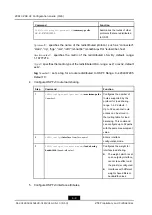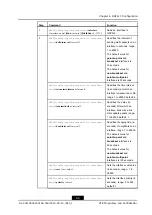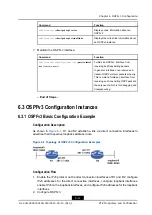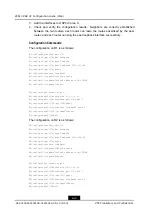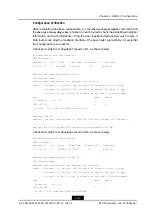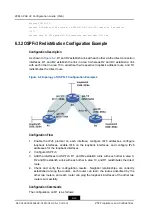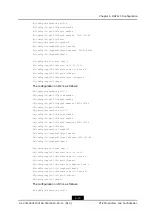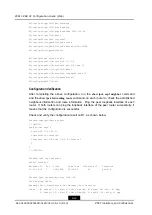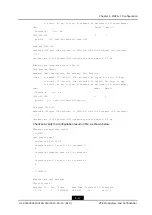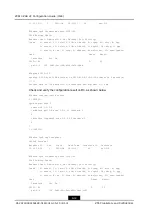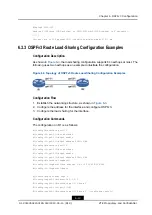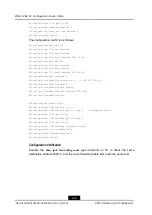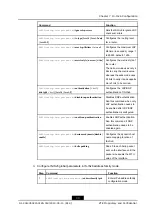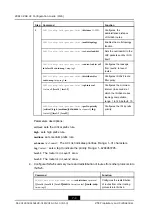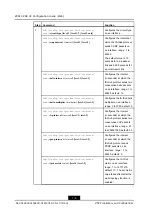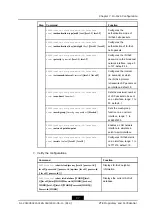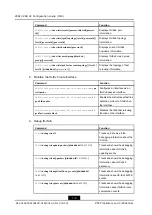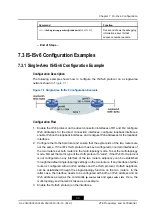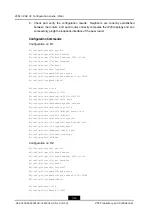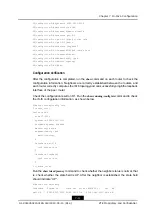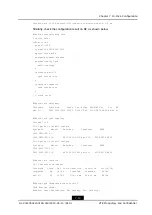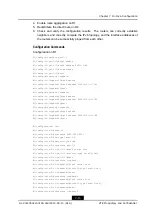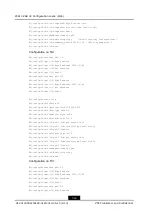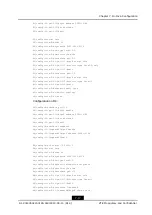
ZXR10 ZSR V2 Configuration Guide (IPv6)
The operating principles of IS-ISv6 are similar to those of IS-ISv4.
7.2 Configuring IS-ISv6
This procedure describes how to configure the attributes and functions of IS-ISv6 protocol
routes, including basic attributes, global attributes, summary route, redistributing routes
into IS-ISv6 from other routing protocols, fast rerouting, and interface parameters.
Steps
1.
Configure IS-ISv6 basic information.
Step
Command
Function
1
ZXR10(config)#
router isis
[
process-id
][
vrf
<
vrf-name
>]
Enables the IS-ISv6 routing
protocol process.
ZXR10(config-isis-process-id)#
system-id
<
system-id
>[
range
<
range-number
>]
Configures the system ID of a
route entity.
2
ZXR10(config-isis-process-id)#
area
<
area-address
>
Designates the area address
of IS-ISv6.
<
system-id
>: specifies the System ID of the instance, which is a hexadecimal string of
6 bytes in the form of xxxx.xxxx.xxxx.
range
<
range-number
>: specifies the extensible range of the System ID, range: 0
to 32, default: 0. The instance assumes an ID ranging from System ID to System
ID+<
range-number
>.
<
area-address
>: specifies the area address, which is a hexadecimal string of 1 to 13
bytes.
2.
Configure IS-ISv6 global parameters in IS-ISv6 routing mode.
If all the devices on the network are the ZXR10, the default parameters can be used
during the IS-IS configuration. If other vendors' devices exist in the network and
interconnect with the ZXR10, however, the relevant interface parameters and timers
may need to be changed to enable the IS-IS protocol to more efficiently run in the
network.
Command
Function
ZXR10(config-isis-process-id)#
enable
Enable the IS-ISv6 protocol.
Use the
disable
command
disable the IS-ISv6 protocol.
ZXR10(config-isis-process-id)#
authentication-type
{
md5
|
text
}[
level-1
|
level-2
]
Configures the authentication
mode of the IS-ISv6 route
entity.
7-2
SJ-20140504150128-018|2014-05-10 (R1.0)
ZTE Proprietary and Confidential

